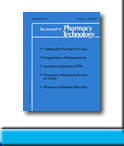 |
 |
CHEMOTHERAPY-INDUCED
DELAYED EMESIS: WHAT IS THE ROLE OF 5-HT3
ANTAGONISTS?
Kwong H Ng
To order the complete CE article click here.
To request full article click here.
OBJECTIVE: To review the current literature assessing the efficacy of different antiemetics, with a focus on comparison between serotonin (5-HT3) antagonists and other antiemetics, in the treatment of delayed emesis induced by either cisplatin or non-cisplatin cytotoxic agents.
DATA SOURCES: A MEDLINE search (1966–July 2002) was performed using delayed emesis, vomiting, nausea, chemotherapy, cisplatin, moderately emetogenic, selective serotonin subtype-3 (5-HT3) receptor antagonists, metoclopramide, domperidone, corticosteroids, dexamethasone, prognostic factors, risk factors, and neurokinin-1 (NK1) receptor antagonists as key words or subject headings. Only English-language articles were identified and included. Additional references were retrieved from selected articles.
DATA SYNTHESIS: Various antiemetic consensus guidelines have recommended the use of different pharmacologic treatment, including the use of 5-HT3 antagonists, for the prevention of chemotherapy-induced delayed emesis. In some instances, it has been suggested that combinations containing a 5-HT3 antagonist may be superior to others. Current data have been synthesized in an attempt to demonstrate the efficacy of 5-HT3 antagonists in the treatment of chemotherapy-induced delayed emesis.
CONCLUSIONS: Dexamethasone has consistently shown its antiemetic efficacy for delayed emesis induced by cisplatin and non-cisplatin agents, whereas the role of 5-HT3 antagonists alone remains controversial. Metoclopramide has been shown to be as efficacious as 5-HT3 antagonists when combined with dexamethasone for the prevention of delayed emesis. As a result, 5-HT3 antagonists should be reserved as second-line agents to metoclopramide in addition to dexamethasone. NK1 receptor antagonists have shown some early promising results. However, many questions need to be addressed before their extensive use in clinical practice.
J Pharm Technol 2003;19:287-97.
ACPE Universal Program Number: 407-000-03-054-H01
To order the complete CE article click here.
To request full article click here.
|
|
|
||
|

